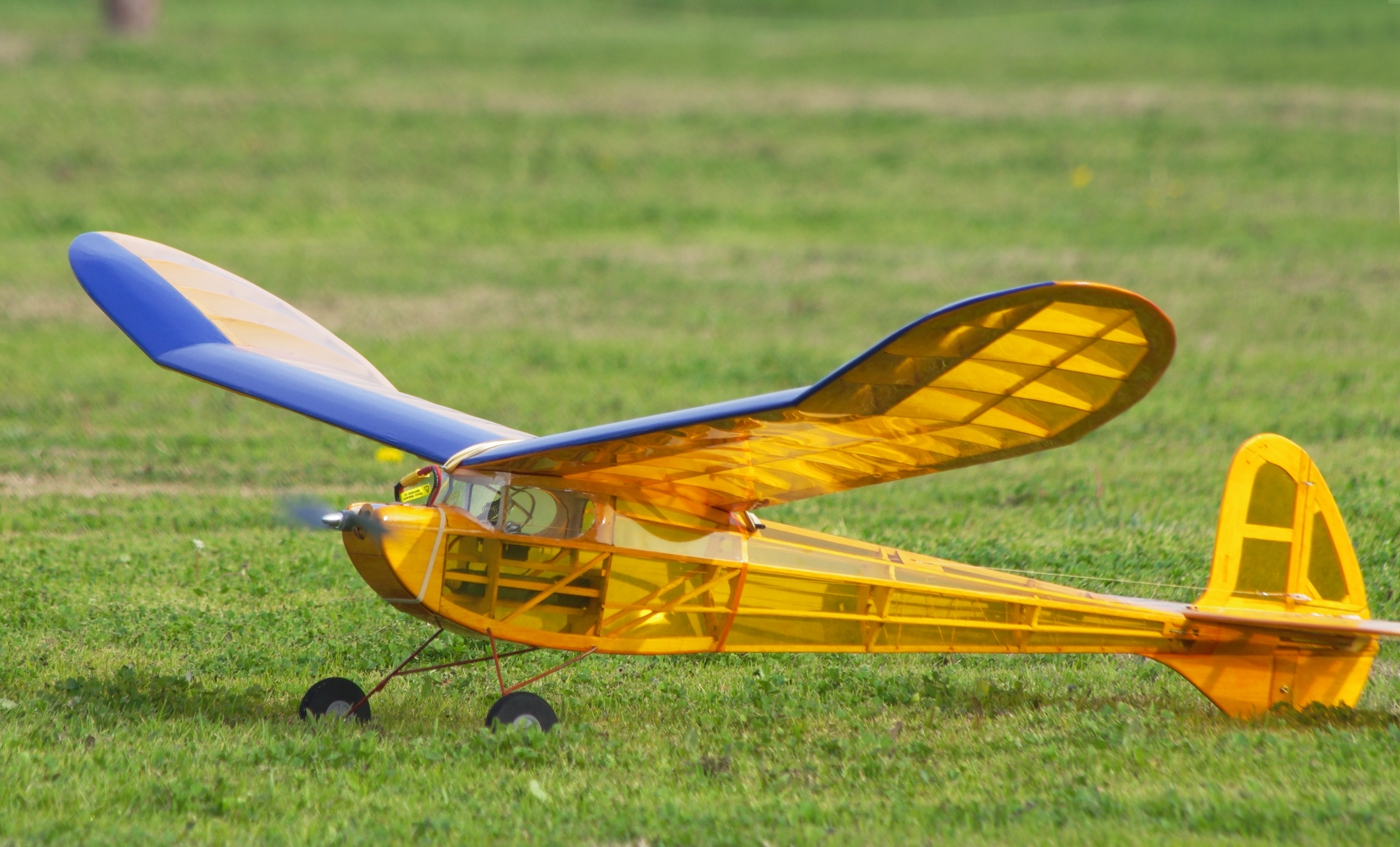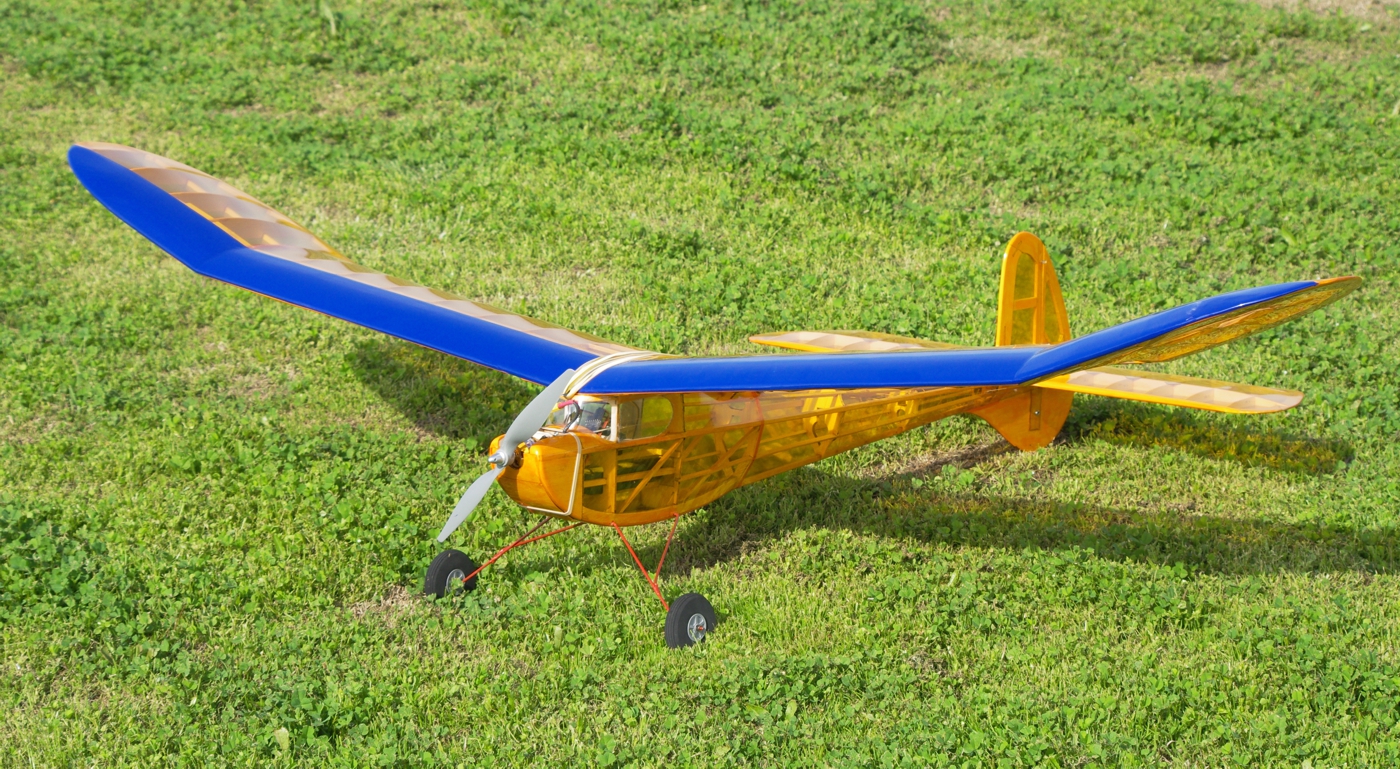
Brian Chan thought it might be a good idea to plate in this area. I wouldn't have done it but I was running out of covering and
was too cheap to go buy another roll just to finish out the last 4 inches of fuselage in one sheet. The sheeting was a good
addition and strengthens and stiffens the support area for the subfin.

OMG, WILL IT FLY???

Yes!!!

A 12-6 APC electric prop was used for the test flight. CG was at 40% of the wing chord and weight was 42.7 ounces. The takeoff is a bit
long because of the low deck angle brought about by the deep sub fin but climb was good. There was no dutch roll tendency, although
at full power in a steep climb the right stick is in the upper right corner. I plan to mix the throttle to the elevator and rudder to
sort that. The rudder response and power is rather relaxed, especially power off, the elevator is very nice. The travels are 45° left
and right for the rudder and 30° up and down for the elevator. The 3S 2000 mah battery is blocked forward of the F5
former about 1 ½ inches by a block of foam and the speed control is stuffed up in the front. I am still working out that
location, it's rather tight and I want to be able to connect the battery from the top of the motor location. The glide is very flat, when
the nose goes down the speed comes up nicely and the descent is not steep at all. Power off loops are easy. At the 40%
CG location the elevator trim is very nearly neutral, just slightly down maybe. To be determined by more test flights.


Later that afternoon with Jeff Stern's graphics applied. This was taken at a city park. Shortly after, I got mobbed by a bunch
of interested kids who wanted to see it fly. I declined due to the small space and numerous trees, but flew the 36 inch Playboy
instead, letting some of the kids have some stick time. What fun!
The typeface for the San Josè was patterned after that of a 1948 Peronist poster about the
nationalization of the Argentine railway system and reflects the artistic flavor of the time.
